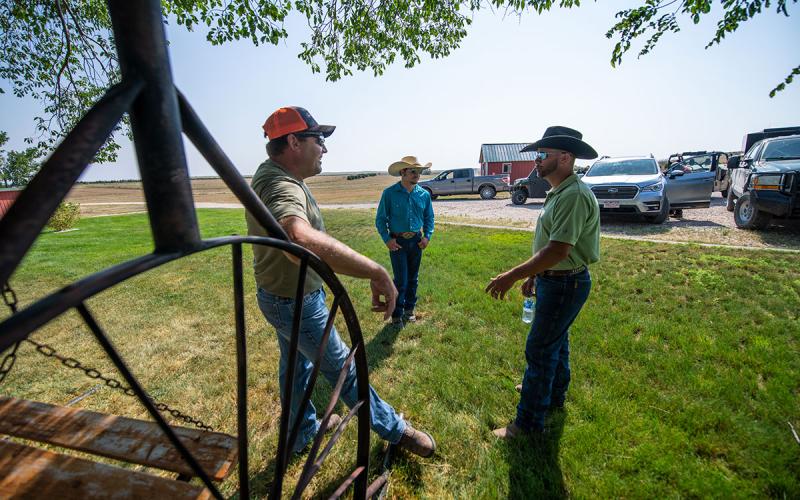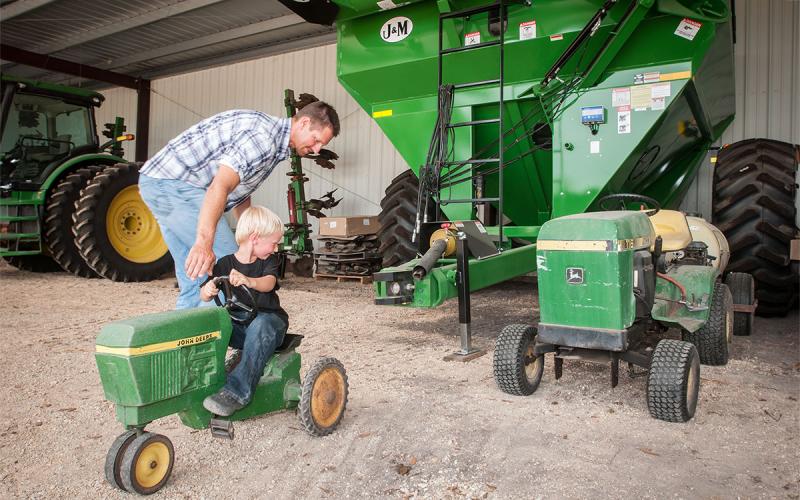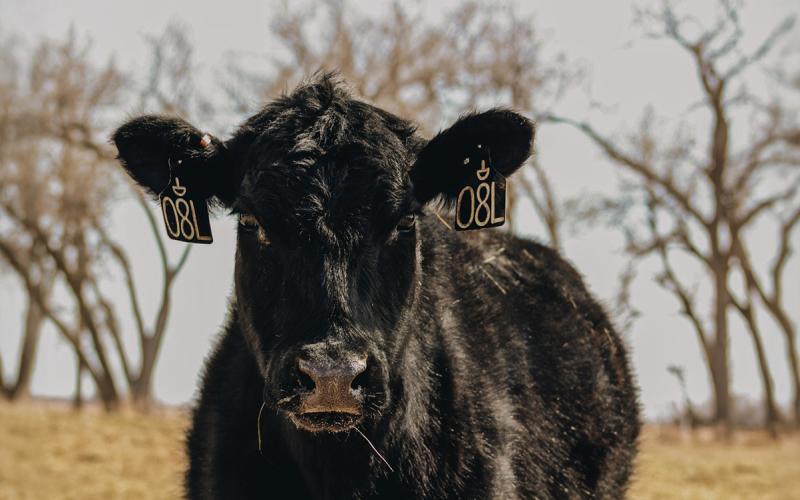
Written by Addie Stamps, former SDSU Extension Livestock Production and Stewardship Field Specialist.
Farm safety encompasses the health and safety of farmers, farm workers, and their families, and it is very important to farmers and ranchers across our state. Agriculture is one of the most-dangerous occupations in the United States, as we are working with live animals, chemicals, and equipment. While emergency injuries occur on farm operations, long-term consequences of loud machinery, heavy-lifting, and chemical fumes are also a concern. Ranchers vaccinate their cattle, because we recognize prevention is often easier than treatment, so apply this concept to your own health as well. Provided is information and tools on worker safety and cattle handling that, when integrated into your operation, can provide additional safety.
Important Safety Considerations
- Think about human safety first when working with live animals. The safety of our livestock is often at the forefront of our mind, but never risk your own health for your livestock. When working with employees, always communicate the plan and any helpful information to reduce risk of injury. Many farmers and ranchers work alone much of the time and cell service can be unpredictable, so it is important to keep someone updated on your location and tasks planned in case of an emergency.
- Develop an emergency action plan for your operation. This is so, in case of an emergency, someone can access the necessary information to find you and ensure that the proper help is provided. These typically include a map of the operation and important phone numbers.
- When using equipment, do a quick assessment before getting started. Always shut off machinery before attempting to work on it. When hauling livestock, check the floor and tires of the trailer, as well as the weather, before loading animals.
- Wear personal protective equipment (abbreviated as PPE). This may include steel-toed boots, a mask, goggles, gloves, or ear protection. This is especially important when working in a barn with poor ventilation. It is easy to get caught up in the work that needs to be done and forget about gloves when handling chemicals, or ear protection on loud machinery, but these are things that can be done to prevent long-term health issues. Always take the time to read the label and take necessary precautions. Also consider PPE when administering animal health products.
Family Safety

Many farms and ranches are family operations, meaning there are often children helping with tasks on the farm. This provides a great opportunity to teach kids from a young age the importance of farm safety. However, it also comes with a greater risk. Take the time, as you would with a new employee, to tell children about the safety precautions they need to take on your operation. Consider enrolling teens ages 14 to 17 in the American Farm Bureau Federation Think F.A.S.T program. This is a free program that focuses on general safety, leadership, and critical thinking skills in agriculture specific contexts.
Mental Health Resources
Let’s all be honest and admit that agriculture can be a stressful industry to work in. It is physically demanding and economically unpredictable, and it is frequently endured in an isolated environment. There are so many factors that affect our efforts that are completely out of our control: the weather, price of inputs, and livestock disease, just to name a few. For generations there was the mindset of “just pull yourself up by your bootstraps” and a stigma around mental health awareness. Many studies have shown that farmer suicide rates are 2 to 5 times higher than the national average. It is so crucial that farmers and ranchers take care of their mental health. It is okay to admit when you’re going through hard times and to get the help you need. What is a farm without the farmer? The SDSU Extension article, It’s Okay to Not Be Okay: Farm Stress Assistance in South Dakota, offers mental health resources designed for farmers and ranchers.
Additional Resource
- Farm State of Mind: Mental Health in Rural America, American Farm Bureau.

